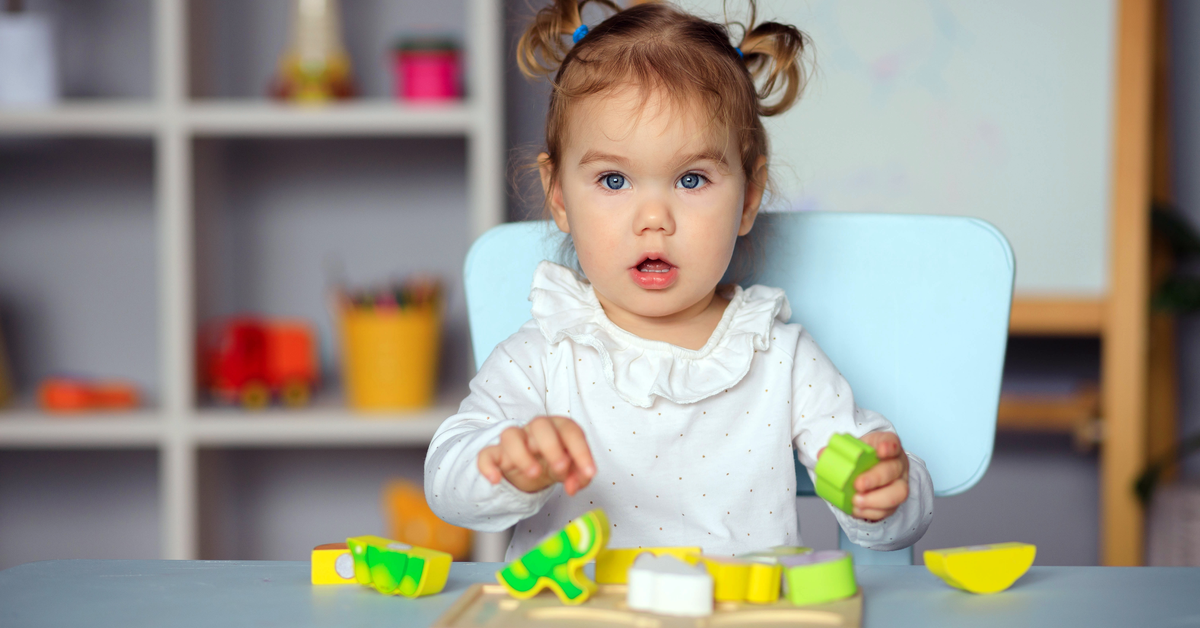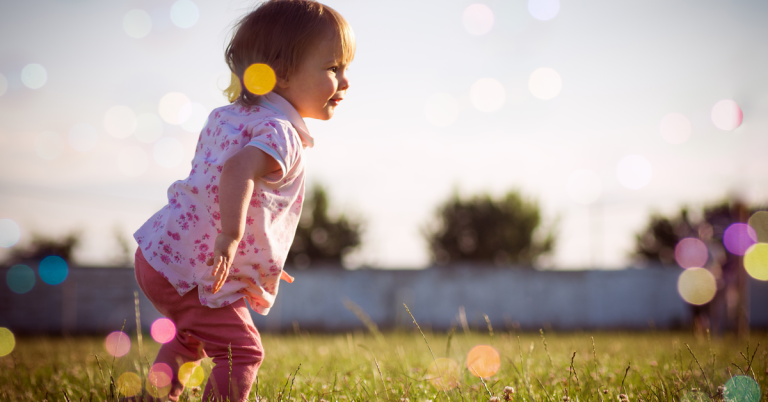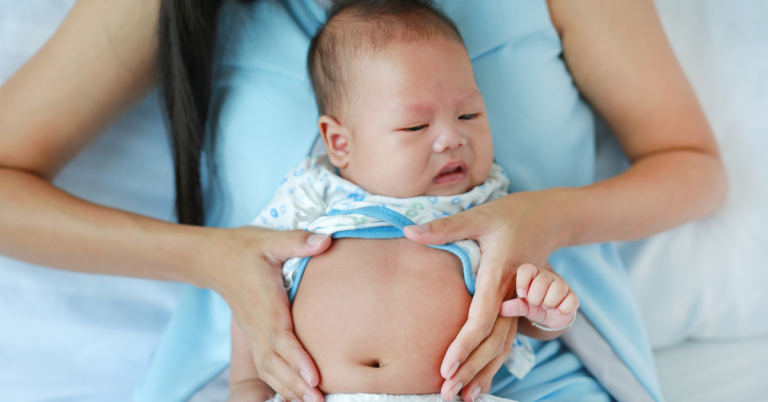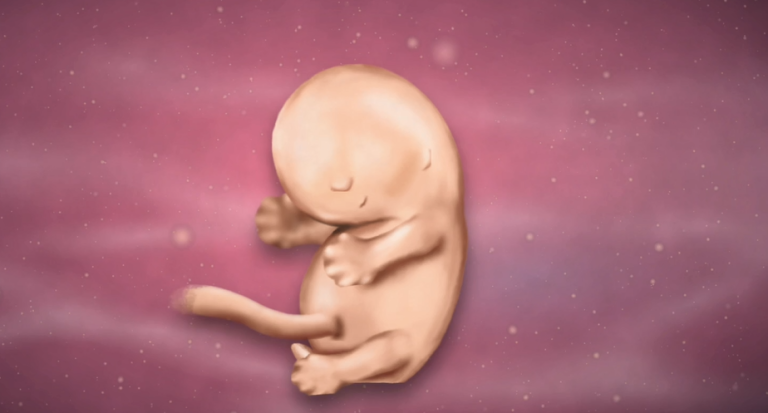When your baby is twenty months old, he rapidly progresses towards age two. As a parent, it is normal to experience a wide range of intense emotions. Besides the great happiness and intense love for your baby, your worries about what is best for him and the urge to protect him from all evils can be tiring. Try focusing on the beauty of parenthood. To relax a bit more, it is important to know what to expect, what is normal and what may need professional attention. This article helps you understand the development of a twenty-month-old baby.
Measurements at Twenty Months
Babies’ emotional, psychomotor, linguistic, cognitive, and social health are influenced by their physical development and measurements (height, weight, and head circumference). A baby’s weight and length must stay within the World Health Organization (WHO) limit values. You should regularly follow up on your baby’s physical development with your family doctor or paediatrician. If his measurements diverge greatly from the standard, you should consult a specialist because this may indicate other health problems and impact your baby’s overall development.
| Gender | Length | Weight | Head Circumference |
| Girl | 77 cm- 88.4 cm | 8.5 kg- 13.5 kg | 44 cm- 49.2 cm |
| Boy | 78.9 cm – 89.5 cm | 9.2 kg -14 kg | 45.2 cm – 50.2 cm |
Cognitive Development
Cognitive development comprises skills such as thinking, learning, and remembering. The following cognitive skills are desirable for a twenty-month-old baby. Your little one …
- Can establish a relationship between objects and create a part-whole relationship. For example, he pretends to pour tea from a teapot into a cup, or he associates the basketball hoop with the basketball and throws the ball, aiming at the ring.
- Can place geometrical shapes in the right slot in a shape-sorter toy or puzzle, consisting of stars, circles, squares, triangles, etc.
- Rhythm skills are also an indicator of healthy cognitive development. A twenty-month-old baby can clap to the music and will try to keep the rhythm.
Language Development
The expected language skills for a twenty-month-old baby are. Your little one …
- He can form simple sentences by combining two or more words.
- He knows the names of most body parts.
- He can say the names of his clothes.
- He has a total vocabulary of about 70-80 words. Although he can understand most of these words, he may not be able to say all of them.
- He communicates not only verbally but also uses body language. When you ask a question, he can answer “Yes” or “No” by nodding his head.
Psychomotor Development at Twenty Months
Psychomotor development refers to a child’s physical and motor development in combination with his cognitive, emotional, and social abilities. The skills gained during this period form the basis of your child’s motor skills for the rest of his life.
As your little one’s energy increases, he can no longer sit still for a long time. The best way to support your twenty-month-old baby is to let him spend his energy through play and activities. The motor skills you can expect to see at twenty months are the following. Your little one …
- He walks and runs more balanced than before.
- He can lift a ball with his hands and throw it with force.
- He can go up and down the stairs. Always accompany him for his safety.
- He can stack blocks on top of each other.
- He can finger paint, easily grasp thick-tipped Jumbo crayons and loves creating masterpieces by drawing lines and circles.
- He can accurately match the lids of different-sized containers.
- He can drive a toddler tricycle without pedals or a ride-on car. When you prepare a safe area for him, and he gets on his bike or car, he moves forward using his feet and steers wherever he wants.
- He can use a fork and spoon. You can buy special baby forks and spoons made of non-toxic materials to allow him to eat his food on his own.
Social-Emotional Development
As your little one progresses from infancy to childhood, he starts developing social relationships. You must support your child in this process of adapting to society and its cultural values and establishing safe social relations.
Let’s see how a twenty-month-old baby develops socially and emotionally.
- He is a great imitator, not only of behaviour but also of emotions.
- He likes to play symbolic games like galloping around the house on his horse, using a broom or vacuum handle or driving a plastic plate like a car and exclaiming, “vroom vroom.”
- He may hit you or his friends. This does not indicate that he is becoming violent, but your child wants to see the other person’s reaction.
- He is unable to share his toys, which is perfectly normal. Instead of forcing him, you can explain how good sharing feels for both parties.
- He may have tantrums occasionally or even regularly. Tantrums arise because your baby now has his own plans and ideas and wants to declare his independence. All you need to do is stay calm, console him, and name his feelings. If it is impossible to do what your toddler wants, offer him different choices so he can feel in control. For example, if he wants to wear a winter coat in the middle of summer, you can offer him two light jackets instead and ask which one he wants to wear.
- He wants to dress and undress himself. Usually, undressing is easier than getting dressed. He can pull down his pants and take off his socks. He can open and close the Velcro of his shoes. Allow him to try doing this.
- He begins to learn table manners. He can use a fork and spoon and cut soft foods like bananas with a blunt knife. You can set the table together and ask him to help you arrange the napkins and utensils on the table. This develops a sense of accomplishment and teaches him to cooperate.
Nutrition at Twenty Months
A twenty-month-old baby who wants to be independent also likes to eat on his own. Allow him to do this, as it will help develop his self-confidence.
Make sure his food is soft and bite-sized. Set him in his highchair and let him eat with his spoon and fork. Children also love finger food. Cut fruits and vegetables the size of your little finger so that your little one can grasp and eat them easily and safely.
If he is drinking from a bottle, you can gradually quit this. Give him milk and water in a small, unbreakable cup. Soon, he will not want to drink from a bottle anymore.
Avoid processed foods. Prepare your meals with natural, seasonal ingredients, without sugar, salt, or additives.
Sleep is Important!
Infancy is a period of rapid growth. Growth hormone is secreted from the chickpea-sized pituitary gland located in the lower part of the brain. The pituitary gland works best during sleep. For this reason, sleep is very important for a baby’s healthy growth.
A twenty-month-old baby needs about thirteen to fourteen hours of sleep, of which about eleven o twelve hours during the night sleep and two to three hours in the form of a nap.
Plays and Activities to Spend Quality Time with Your Baby

Children learn through play. It is the best tool to support their cognitive, psychomotor, social, emotional and language development.
During a game, you can teach the importance of sharing, the joy of success, new words, colours, counting, and much more. With the following games, you can positively impact the development of your twenty-month-old baby. The play suggestions may also help you create new games and activities.
Let’s Find the Toy
You can play hide-and-seek with nested containers. Hide a toy in one of the containers, then put the containers on top of each other, say, “Let’s find the toy!” and give brief instructions. After finding the toy, ask your little one to hide it this time.
Football
It’s a good time to play football and score goals. Build a football goal using household items, like the legs of a chair or table or two objects spaced a small distance apart. Let’s score!
Happy Farm
This activity supports your baby’s cognitive development by helping him associate objects with living things. Build a farm floor with a barn, henhouse, muddy puddle, and a small lake. Draw and paint farm animals on cardboard and cut them out. Ask your little one to put the animals in the appropriate place. The pigs go in the muddy puddle, the chickens in the henhouse, the ducks in the lake, and so on. If necessary, you can give simple instructions and help.
Crazy Orchestra
You can use rattles, maracas, a drum, a xylophone, etc. If you do not have these, you can make musical instruments using plastic containers, metal pots, wooden spoons, plastic bottles filled with beads or dried lentils – make sure to close these off well with strong tape. Then turn on one of your toddler’s favourite songs and keep the rhythm together, sing, dance and enjoy the music.
Artworks
Let your child play with finger paints, crayons, paper, etc. Your baby’s fine motor skills develop, and your bond strengthens.
Let’s Get Dressed
Dress a plush toy or doll in your baby’s clothes. Then ask questions about the different types of clothes. “Shall we take off his socks?” “It’s snowing; it’s very cold! Shall we wrap a scarf around your teddy bear?” Then, ask your little one to undress and dress the teddy bear. This activity stimulates your baby’s fine motor skills and teaches him to dress and undress and share his belongings with someone else.
It is in your hands to raise a physically, mentally, cognitively, and socially healthy child. A deeper insight into a twenty-month-old baby’s development helps you better understand your little one’s needs and how you can best meet them. It will allow you to enjoy your time together more.
Shopping Advice – What to Buy?
Your twenty-month-old will be over the moon with a basketball hoop or football goal at home to practice his ball skills. To stimulate your child’s artistic talents, finger paint and Jumbo crayons are ideal. A colourful set of baby bath toys will make bath time attractive and fun and help your little one overcome his fear of water. Your toddler will also enjoy riding a tricycle without pedals or a ride-on car.
You can stimulate your child’s vocabulary and matching skills with a set of farm or zoo animals. Regularly reading books with your little one also promotes his language development. Now that your baby is ready to use a fork and spoon, buying a colourful set will draw his attention to eating even more. Look at ebebek.com, read other caregivers’ comments and purchase these items and more at affordable prices.
It’s Your Turn Now – Write a Comment!
How are you raising your twenty-month-old baby? What challenges did you experience this month? How did you overcome them? We welcome your comments so that other caregivers can learn.
Don’t Forget to Share!
Don’t forget to share our twenty-month-old baby development article so that expectant parents and other caregivers can read and learn!







